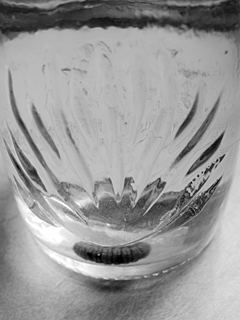| | 
- 5 February 2003
- No. 3,758 (cartoon)
- You flaunt your incompetence like a martyr.
You don’t know how I suffer. That’s not true; you suffer like an imbecile. 
- 6 February 2003
- Eighteen Times the Speed of Light
- Journalists at the Cable News Network reported that the ill-fated space shuttle was traveling at eighteen times the speed of light when it fell apart into tiny, little pieces over Texas. From the little I know about physics, that explains the whole catastrophe.
What I don’t understand, however, is why the network pulled the stories off the newswires after just a few hours. I suspect the American military forced the network to bury the revelation, but that’s only conjecture. I’ll never know the military’s secrets, such as whether the ill-fated shuttle carried twenty kilos of plutonium like previous flights. Even so, I fear Texas may be even more uninhabitable than usual. 
- 7 February 2003
- One Herb Alpert is Enough
- When I was carrying my cornet down the school hall in fourth grade, the institution’s custodian opined that I might be the next Herb Alpert. I smiled, and thanked him for his compliment. In my heart, I knew he was right.
It turned out that the janitor and I were both idiots, and that one Herb Alpert was more than enough. 
- 8 February 2003
- Shorter than Monterroso
- I just read that the Guatemalan writer Augusto Monterroso, who allegedly wrote the world’s shortest story, died yesterday at the age of eighty-one.
Although I’m reticent to critique the recently-deceased, I am nevertheless compelled to point out that Monterroso did not write the shortest story ever. I know that’s true, because I am the author of the shortest of short stories. I shall present the proof. “Upon waking, the dinosaur was still there.”—Augusto Monterroso “She never.”—Me Now that I’ve presented the evidence, let’s look at the statistics. Monterroso: Seven words, eleven syllables, forty-one characters. Me: Two words, three syllables, nine characters. I win. As usual. 
- 9 February 2003
- Gone Insane
- I went insane for a relatively brief period today. As altered states go, insanity doesn’t have much going for it. Insanity does have a certain appeal, though; after my brief trip I can see why some people may not be able to come back.
I think I’ll wait quite some time until I go insane again. 

- 10 February 2003
- Drinking with Worm
- Doctors Laven and Pielenz brought me a delightful souvenir from their clandestine rendezvous with Mexican insurgents: a bottle of fine tequila. With a worm in it, even. I was delighted by how wonderfully smoky the concoction tasted.
After drinking really good tequila, I may never drink the cheap stuff again. Unless I’m paying for it, that is. 
- 11 February 2003
- Random Thoughts
- “You know how they say enough monkeys pounding on enough keyboards would eventually write the complete works of William Shakespeare?” Derek asked. “Well, I bet one chimp could write one of your notebook entries in fifteen minutes.”
“Actually,” I replied, “you managed to choose one of the few topics I know something about. I shall now present the evidence.” I pulled out a copy of my 1994 piece, Not To Be: One Million Randomly-Generated Variations on the Seven Characters (based on the frequency of their occurrence) in “To Be Or Not To Be” Presented in Eight Hundred Assemblages. (Available as a PDF.) I explained that I programmed my computer to randomly generate the seven different characters in the phrase, “to be or not to be,” based on the frequency of their occurrence. For example, the computer was three times more likely to come up with an “o” than an “n.” Even with a million tries, none of the eighteen-character strings looked anything like “to be or not to be.” I was surprised by the results until I read a mathematics book for the first time in a couple decades. I would have had to have run the program 1,628,413,597,910,450 times in order to have a fifty-percent chance of generating “to be or not to be.” I used that knowledge to create another 1994 piece, Random Random: Forty-Six Thousand Six-Hundred and Fifty-Six Randomly Generated Six Character Words in Eight Hundred and Sixty-Four Groupings Using the Letters a, d, n, m, o and r with a One Hundred Percent Chance of Correctly Spelling the Word Random. (Also available as a PDF.) It worked. 
last weak | index | next weak
©2003 David Glenn Rinehart
| |

